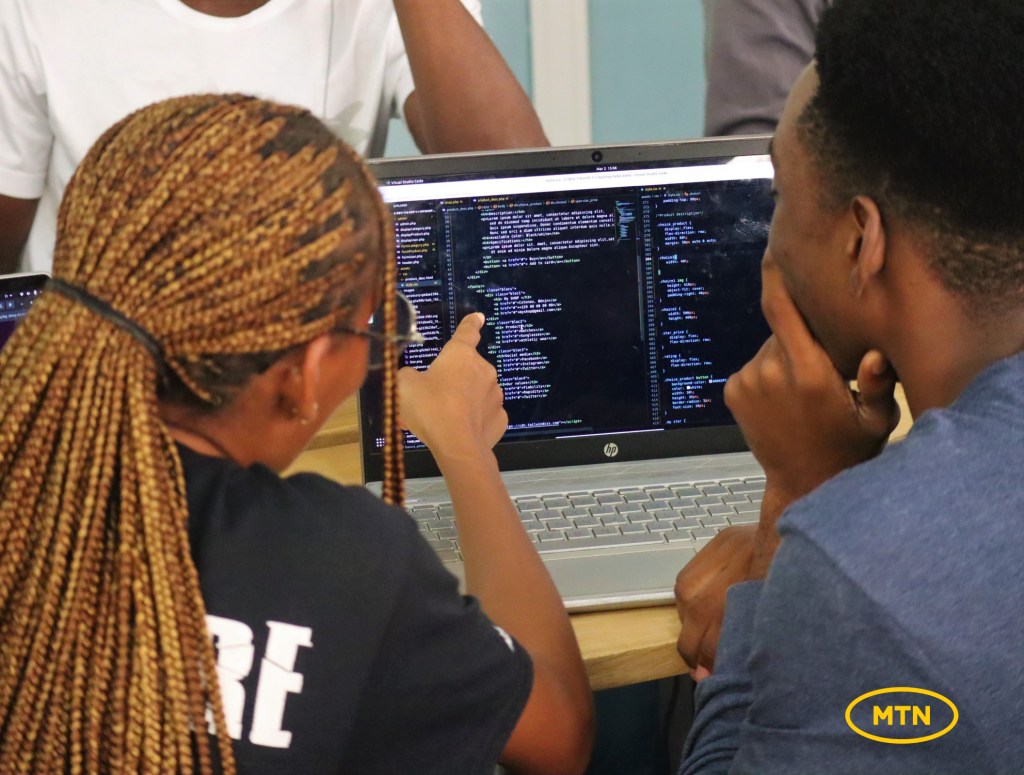
- Home
- About Us
- Sustainability
- Investors
- News
- People & Culture
-
Regions

The future of Africa lies in the hands of its youth. The global youth population is set to increase by over 78 million between 2021 and 2030, with a significant portion of this growth happening in low-income countries. Education and training systems need to respond to this challenge.[1]
Educators – teachers, trainers, and mentors – play a crucial role in this process. They are the ones who can unlock the potential of our youth, providing them with the skills they need to navigate the future. This learning can take place in a variety of settings, from online classrooms to community learning spaces.
However, it’s important to recognise that for many young people, especially in Africa, the existing education system does not fully meet their needs. This leaves a significant number of our youth without adequate education or skills and uncertain about their future. Globally, more than a fifth of individuals aged 15-34 are not engaged in education, employment, or training[2], and Africa records the lowest youth enrolment in education. This challenge is further compounded by gender disparities, with young women less likely to be enrolled in education than young men.[3]
Despite these challenges, there is potential for growth. Advanced fields such as artificial intelligence, scientific computing, and human-computer interaction remain relatively untapped on the continent[4]. By 2030, it is estimated that Sub-Saharan Africa alone will have 230 million “digital jobs”[5]. In response to this urgent need, MTN has taken the initiative and launched the MTN Skills Academy to address the challenge head-on.
Introduced at MWC Africa in Kigali in 2022, the Skills Academy is now being gradually implemented in our markets, with a successful initial launch in Zambia. Our upcoming markets to embrace this initiative include Uganda, eSwatini, and Cote d’Ivoire. We firmly believe that by granting access to an online platform that provides digital and financial skills across various levels—ranging from foundational to advanced—we can empower the younger generation to enhance their expertise within the digital economy. This, in turn, will equip them for the challenges and opportunities presented by the 4th industrial revolution.
But this “Tool for Doers” is more than just a training platform. It’s a holistic model of upskilling, an ecosystem that goes beyond imparting digital and financial skills. We believe that access to information, career guidance, and soft skills development are equally important in shaping future leaders.
Our commitment to youth empowerment is reflected across our markets, with numerous CSI programmes and partnerships focusing on digital education. These collaborations with civil society, government organizations, local communities, NGOs, and other sector players ensure that we play our part in offering relevant solutions to local challenges.
For instance, in Benin, we have the Tita Digital Skills Programme. This initiative is designed to enhance the digital environment in public universities, thereby fostering job creation and youth entrepreneurship. The project is a testament to our long-term vision and commitment to progressively provide access to digital trainings and create digital ecosystems of committed, innovative, and inspiring learners in public universities. Through this project, we are partnering with public universities and the Ministry of Higher Education, as well as engaging with existing ICT organisations to achieve an even greater impact.
In Cameroon, we have initiated the Y’ello Digital Talent Competition. This is a digital competition for universities and engineering schools with the aim to involve young people in the reflection and quest for optimal and impactful solutions to the development issues of our country. The theme for the first edition is the development of digital solutions in the field of education. This competition not only encourages innovation but also provides a platform for young people to contribute to the development of their country.
Meanwhile, in Congo Brazzaville, we have the School Connectivity Project. This project has equipped the students of the Denis Sassou Nguesso University with a connected room fully equipped with computers and internet connection to support their academic curriculum and help them integrate digital tools in their learning process. Through this initiative, we are improving teaching and learning techniques in the university by increasing the number of students able to use ICT tools and reducing the digital divide.
As we look towards the future, we see a digitally inclusive world where every young person in Africa has the opportunity to thrive. The MTN Skills Academy and our numerous CSI programmes are more than initiatives; they are a testament to our commitment to this goal. We’re not just preparing our youth for the future; we’re empowering them to shape it.
In the spirit of the recently commemorated World Youth Skills Day, we reaffirm our dedication to this endeavor. We believe in the power of our youth, their potential to transform the future, and the promise of a digitally inclusive world. With this in mind, we’re not just doing this for today; we’re #doingfortomorrowtoday.
[1] https://www.un.org/en/observances/world-youth-skills-day
[2] https://globaleducationcoalition.unesco.org/global-skills-academy
[3] https://www.ilo.org/global/publications/books/WCMS_737648/lang–en/index.htm
[4] World Bank, “The Future of Work in Africa: Harnessing the Potential of Digital Technologies for All”
[5] 2019, Digital Skills in Sub-Saharan Africa, Spotlight on Ghana, IFC